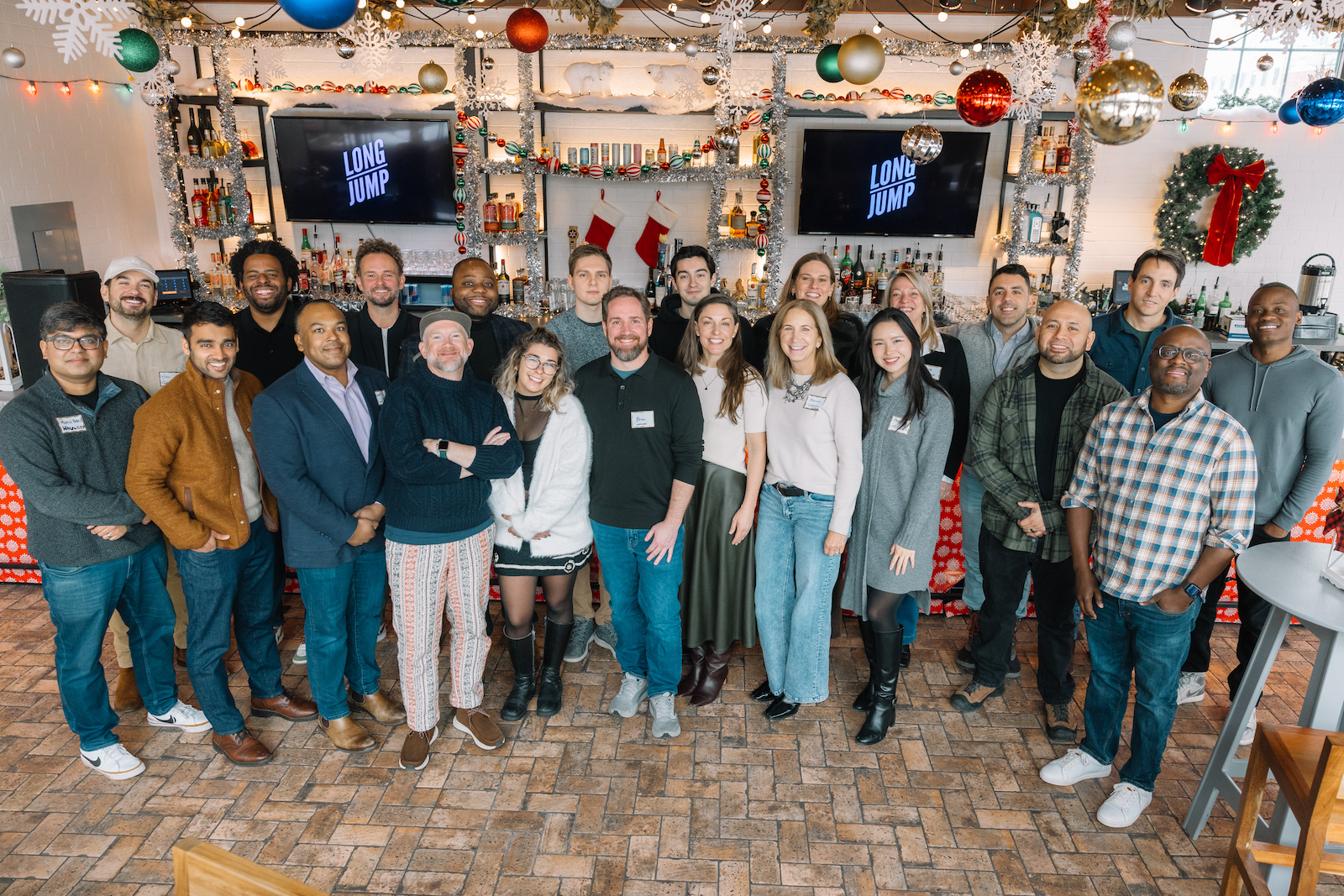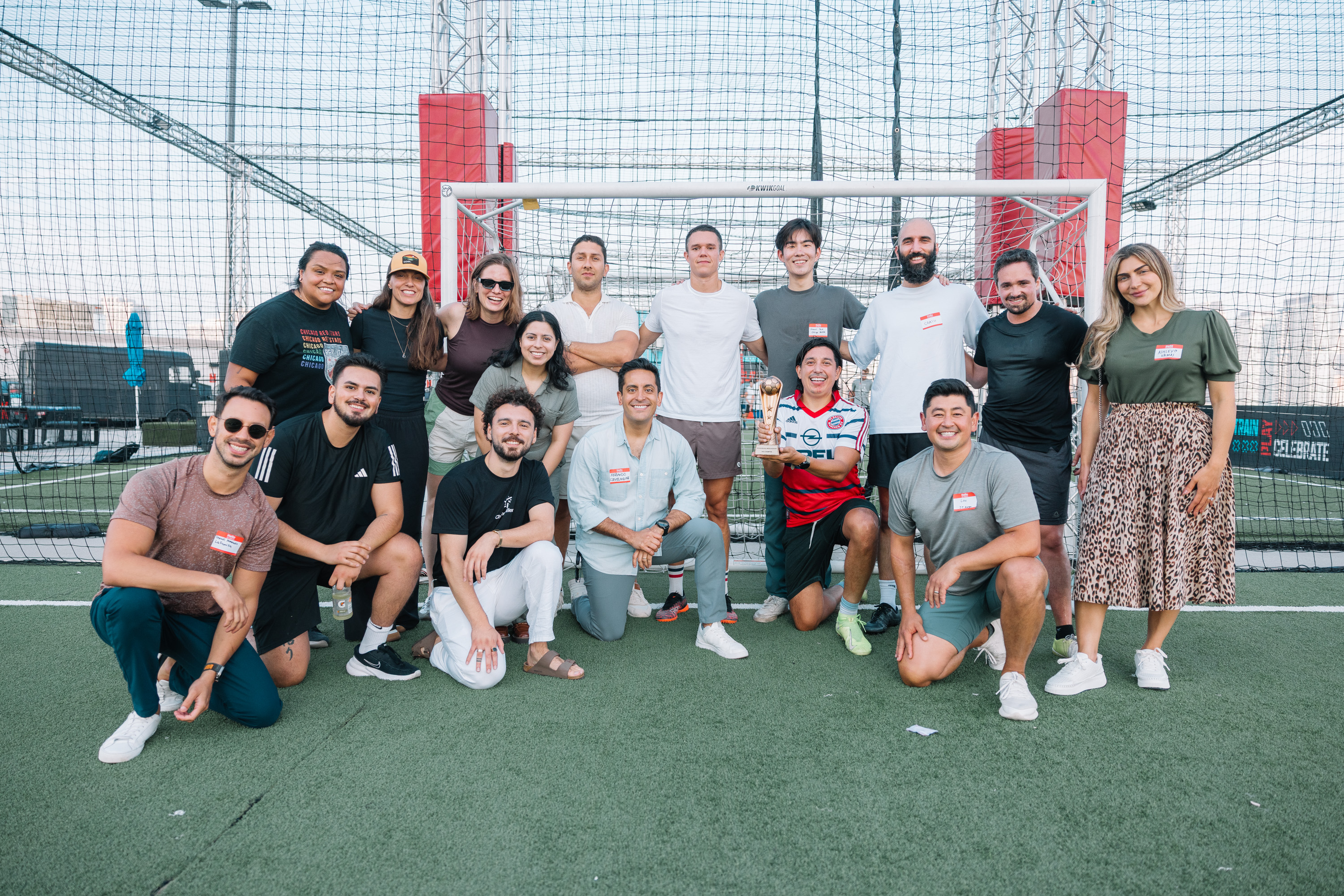
Don't Miss a Step. Subscribe to our Newsletter
“I was glued to my computer, trying to get more deals to close, more money from my commissions, the next promotion. It was a vicious cycle where I never had enough; I would get to the next thing I wanted and be like, ‘Wow, that’s great, but what about next month?’”
Ten years ago, Jason Komosa was living the dream of an ambitious early startup employee. Joining Groupon as one of its first 100 employees, he was part of the team while it expanded globally reaching a headcount of 14,000 and ultimately its IPO. Rising from Account Executive to Director of National Sales during five years of hyper-growth, Jason found himself with the financial stability he had dreamed of his entire life at just 29 years old. He was also depressed, addicted to his phone, and deprioritizing everything around him that was not related to work.
Introduced to a coach that he credits with radically changing his life, Jason apprenticed alongside him before going through his own coaching certification while continuing work in revenue growth and sales at various start-ups. A traumatic experience during the birth of his first child led to a reevaluation of his life’s purpose and a focus on his life’s purpose: helping people diffuse stress, detach their self-worth from their jobs and money, and deliberately create a life of intentionality.
Jason shared with LongJump some of his experiences and recommendations for founders and early startup employees who are in the building phase when every up and down is acutely felt and the business feels like an extension of yourself.
Founders and early-stage startup employees, by nature, skew ambitious - whether motivated by mission, ego, financial stability, or something else - founders dream big and are driven to turn an idea from nothing into something. Jason challenges the work-at-all-costs mindset of building and argues there are small, incremental ways to build balance in your life to make entrepreneurship a more sustainable career in the long term.
Celebrate Macro AND Micro Wins
Society loves to celebrate what Jason refers to as Macro Wins: buying a new house, a book deal, closing a funding round, or securing a huge customer. However, behind all of those accomplishments, there are Micro Wins to be celebrated. These Micro Wins - the day-to-day achievements in life - can be easy to ignore.
A huge customer doesn’t come without booking a new prospect as a sales call. Closing a round doesn’t happen without scoring an initial meeting with an investor. These are the Micro Wins. “If we draw a line in the sand and focus on the things we can control (like getting these initial meetings), we start devoting our energy to things we can control rather than dwelling on things out of our control, like the current start of fundraising, all of our competitors, etc. It allows you to focus on you, your company, and your actions that build toward success,” Jason says.
Think about how you or your team can create space to recognize these Micro Wins: through share-outs in regular stand-ups, piping progress into a Slack channel, or through recognition in manager one-on-ones. If you’re a solo founder, simply taking time at the end of your day or week to write out some Micro Wins can help you recognize your progress.
Creating Boundaries
Recognizing that for founders, nearly every waking hour can be devoted to working on or thinking about your business, Jason suggests being fiercely protective of those times you can control. You can do this by examining how you spend your days from the moment you wake up to when you go to sleep and identifying those parts of the day you have the most control over and introducing some boundaries around that time.
Most often, the time we have more control over lies in the starting and ending of days. Jason comments that for many of the clients he coaches, they wake up and scroll through Slack or their email, even before getting up to brush their teeth or go to the bathroom. Similarly, they tend to scroll through their calendars or emails one last time before bed. Over time, this behavior becoming a habit can affect your ability to “turn off” your mind, your sleep quality, and starting your day on the right foot.
It’s well-acknowledged that going through your phone in bed is bad, but breaking the habit is difficult. Try charging your phone in another room so it’s not the first and last part of your day and replacing the habit with something that transitions you in/out of your day, like journaling or reading.
Setting Floors and Ceilings
Founders turn to a variety of activities and hobbies to create space for themselves throughout their days and weeks to avoid burnout: time with family, exercise, meditation, the arts, etc. Finding the time to build a routine around these activities can be hard - for this, Jason recommends setting a floor and a ceiling for yourself.
Imagine that you want to start a new exercise routine but some days you barely have time for lunch. Jason advises to think about your ideal routine, given you have unlimited time - this may be one hour of exercising each day - this is your ceiling. Recognizing that hour-long time commitment may be unattainable some days, you turn to your floor - that ridiculously small activity you can do to at least continue the exercise commitment you made with yourself. This could be a single pushup, walking around an airport while taking a call during work travel, or stretching during your morning coffee.
“Somewhere in between that one push-up and an hour is where I’m going to land every single day. One push-up isn’t going to burn a ton of calories - that’s not the point. Your goal is not to break your streak of momentum.” Jason says.
Self Improvement Starts with Self-Acceptance
There is no shortage of books, blogs, tweets, and thought pieces around “life hacks” in the entrepreneurial community - ways to squeeze more efficiency out of our days, be more effective in our work, and be more present in our day-to-day. Jason says that many of the founders he coaches want to go from zero-to-two when they set their mind to something, whether it’s with their business or a hobby like cooking. It’s important to take a step back and evaluate where you’re at with skill and give yourself the patience to develop. Take time to recognize that while something may work for another person, that doesn’t guarantee it will work for you. It’s okay to fail at an experiment and move on to try a new angle more suited to your style without beating yourself up about it.
A key to this is building vulnerability with yourself and others over time. It’s easy for founders to look at other entrepreneurs and startup success stories in the media and ignore the challenges and self-doubt nearly everyone has in building. Finding someone or a group of individuals, whether it’s a friend or fellow business owner, that you can be honest with when discussing how you’re really feeling can be a pressure release, creating breathing room for the emotional side of your brain. Having trouble finding this person? Try being that person for someone else, Jason says, “If I’m vulnerable with another person, talking about how I’m feeling in the moment, or a story from something difficult I’ve gone through, I’m opening up my heart and signaling to the other person that it is safe for them to do the same.”
Ready to Take The leAp?
Community
Contact
© 2025 | Site Built By PNW



.png)